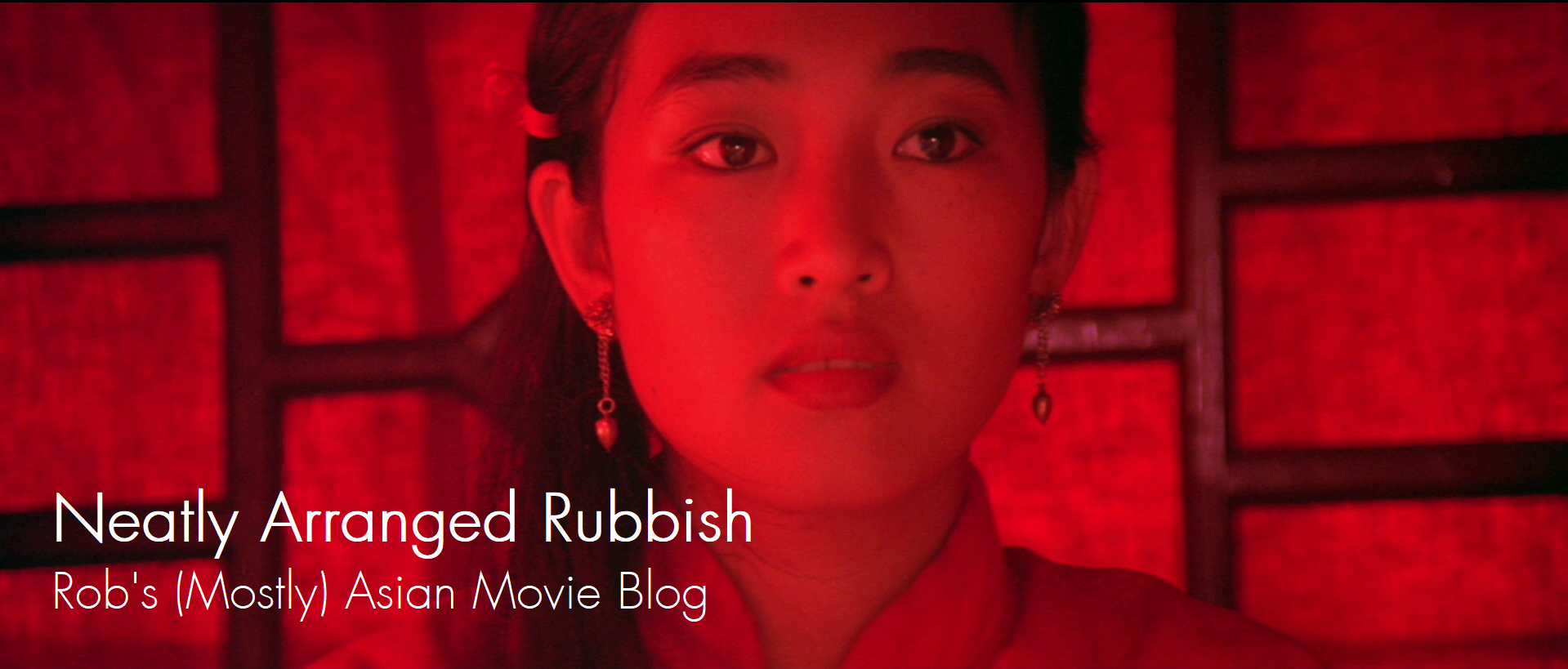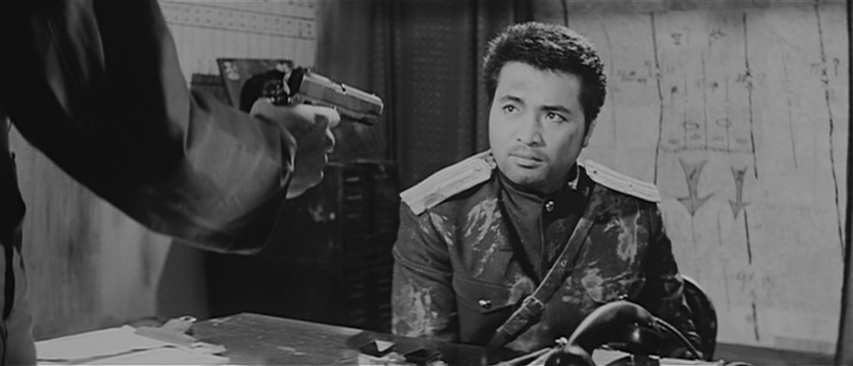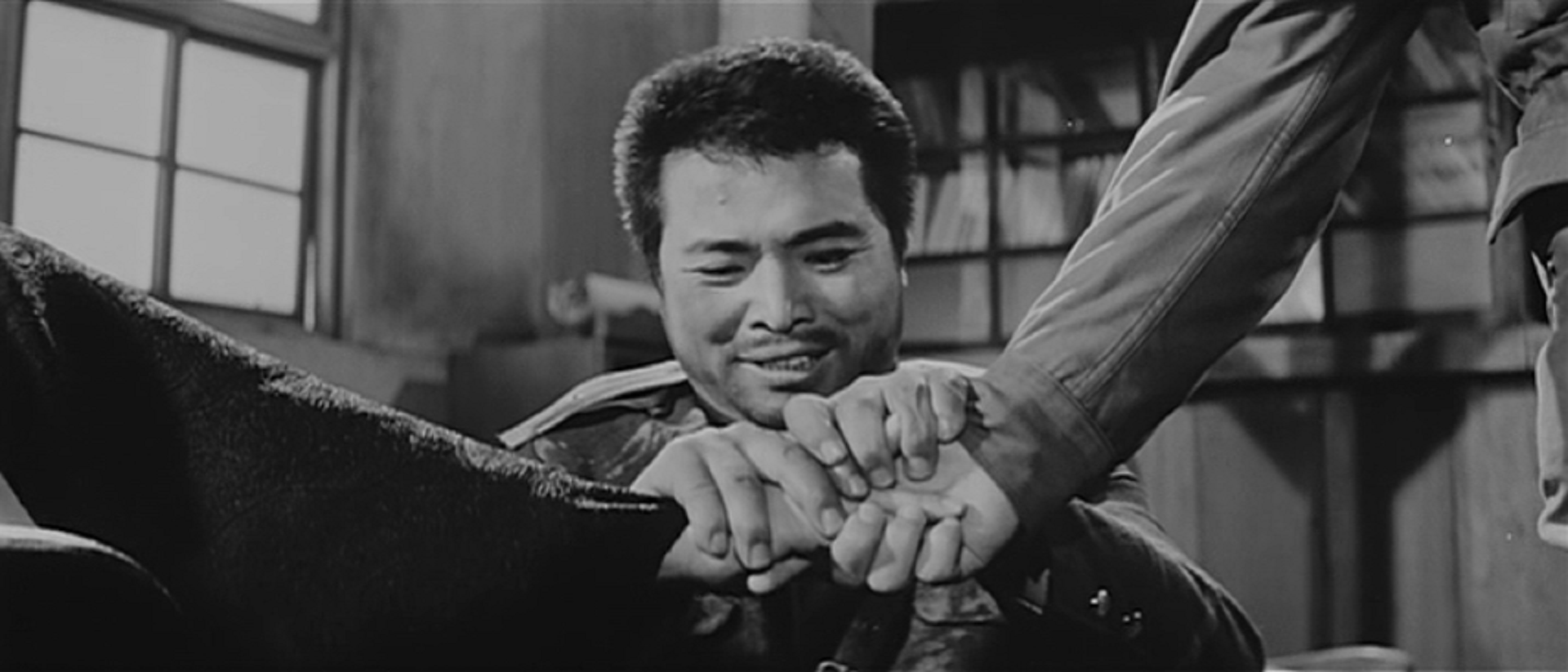Last Updated on October 17, 2020 by rob
During the Korean war Northern army officer Jang Il-gu (Shin Yeong-gyun) defects to the South to find the woman he was forced to leave behind when he was conscripted into the Japanese army six years earlier. Under questioning from Captain Lee (Choi Mu-ryong) and his superior, Colonel Kwon (Nam Kung-won), Jang agrees to trade information about enemy positions if the woman, Eun-ga (Um Aing-ran), is brought to him within 48 hrs. Troops are ordered to fetch her but the long wait drives Jang to breaking point as an equally troubled Captain Lee grapples with the realisation that the woman Jang is so desperate to see is none other than his own wife.
Though its front line setting makes it look like a combat pic this is a gripping melodrama about the agony of forced family separation which the post-WW2 division of Korea imposed on the population. Right from the moment Jang stumbles out of the dark on the frontline and surrenders to Captain Lee and his men we barely give a passing thought to any information he may possess about attack plans or enemy troop positions so heartfelt and sincere is his desire to see Eun-ga. Not only is he completely unaware that Eun-ga has a surprise for him in the shape of Ji-won, the infant son he’s never seen, but a torrential rainstorm which slows mother and child’s journey to the frontline amps up the tension as the increasingly volatile mood swings of Jang and Captain Lee have us fearing the former is going to get himself shot by his captors before Eun-ga even arrives.
Captain Lee’s shocked reaction as Jang describes the woman he’s searching for also piques our interest in the way it hints there’s more going on here than meets the eye. However it’s the innate decency of the characters that resonates most. Colonel Kwon’s escort of Eun-ga and his gentle hints at the reason for her trip (he won’t tell her outright because she’s pregnant with Captain Lee’s child and the Colonel fears what the shock might do to her) underscores the humanism that runs right the way through the movie. It might seem unlikely for soldiers on the frontline to go to all the trouble of accommodating a captive like this – although this is something the script neatly addresses by having one of its soldiers note this wouldn’t be happening at all if things weren’t so quiet – but the point of the story is that Jang’s tale of forced separation from the woman he loves is a metaphor for that of Korea itself.
That’s why the flickering moments of recognition, sympathy and empathy on the faces of Jang’s captors as he relates his tales of woe to Eun-ga cut so deep. Jang might nominally be an enemy combatant but he’s also one of them, a fellow Korean. His suffering is their suffering and all this sorrow comes pouring out in a masterfully staged third act in which Jang, Eun-ga, their infant son and Captain Lee come face to face. The biggest surprise here is the revelation that Captain Lee has known all along who Jang is. We’ve thought his unease and subsequent depression was simply because he recognised the description of Eun-ga from the one Jang gave him at the start of the film. But a poignant flashback shows us that not only is Lee fully aware of what Jang means to Eun-ga, but knowing her eternal love for Jang, he offered to marry her only until Jang returned so that little Ji-won would at least have a father.
That’s a brilliant touch because it underlines this idea that, North or South, everybody’s connected, it’s all one big family that’s suffering. Yeong-gyun gives a terrific performance as Jang. His sincerity and anguish feels so palpable it holds you gripped right the way through the film. I also liked Nam Kung-won (looking uncannily like a young Gregory Peck) as the increasingly sympathetic interrogator Colonel Kwon. As director Kee-duk’s commentary on the DVD notes, there’s no question that the intensely melodramatic style of performance will have modern viewers laughing their heads off and yet although the style is old fashioned the underlying emotions of the characters feel wholly authentic and it’s this which gives the film it’s considerable clout. The metaphorical aspects aren’t lost on the viewer either. The saintly yet endlessly suffering Eun-ga is clearly meant to symbolise the country as a whole (the film’s final shot actually superimposes her beatific image over the mountain landscape) and taken together with the grim fates of Jang and Captain Lee it really does convey both a personal tragedy and the pain of an entire country.



